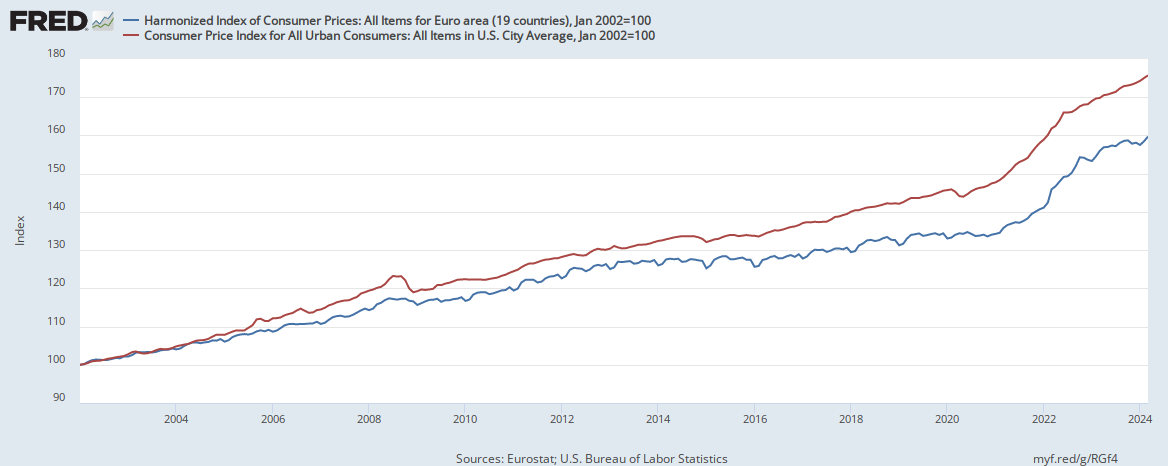Paul O Mahoney
Registered User
- Messages
- 1,844
The Euro has for the first time since December 2002 hit parity with the US $. The euro at that time was in our pockets for only 12 months and I remember many commentators at that time saying to expect the euro never to trade above $1 ever.
Obviously those predictions were incorrect and in general the euro has remained a robust currency internationally, but has added debt to many EU countries balance sheets.
The economic world has changed in the last 20 years and the effects of parity might be different, and my question is what the effects will be now?
Before a discussion begins the general mood in the market is that while this level might be temporary many think that it could represent a mid point of trading over the medium term with 95c to €1.05 being a range spoken about by many.
Many are also saying that its slowness of the ECB in raising interest rates is the main contributing factor for this event.
We know that interest rates are going to rise within the eurozone soon with many saying that its likely that rates will rise between 150 and 200bps over the coming months and this is now baked in especially in fixed rate mortgages presently on the market.
However I would like to look beyond that effect and perhaps see what the effects of a weak euro will have on Ireland's economy over the medium term.
Obviously higher borrowing costs will affect disposable income and may help in stopping inflation rising higher or reversing the rate back down to reasonable levels.
Many have investments in $ based funds or have RSUs etc from US multinationals and those will increase in value on encashment, as will the income tax payable.
Our Multinationals, who primarily trade/export in $'s will also have more income on their books and by extension would this flow into increased taxable income?
Of course US based goods and fuel is going to get even more expensive and this will add more pressure on households over the coming months.
As you can see the effects are wide ranging and far too big for an OP, and my economic knowledge wouldn't be great, but as an open economy I think we are especially sensitive to major economic changes and I think a weak euro is a major change with unknown
consequences .
Edit: Let's try and not speculate on what might happen but what has happened yesterday and the likelihood of these rates continuing.
Obviously those predictions were incorrect and in general the euro has remained a robust currency internationally, but has added debt to many EU countries balance sheets.
The economic world has changed in the last 20 years and the effects of parity might be different, and my question is what the effects will be now?
Before a discussion begins the general mood in the market is that while this level might be temporary many think that it could represent a mid point of trading over the medium term with 95c to €1.05 being a range spoken about by many.
Many are also saying that its slowness of the ECB in raising interest rates is the main contributing factor for this event.
We know that interest rates are going to rise within the eurozone soon with many saying that its likely that rates will rise between 150 and 200bps over the coming months and this is now baked in especially in fixed rate mortgages presently on the market.
However I would like to look beyond that effect and perhaps see what the effects of a weak euro will have on Ireland's economy over the medium term.
Obviously higher borrowing costs will affect disposable income and may help in stopping inflation rising higher or reversing the rate back down to reasonable levels.
Many have investments in $ based funds or have RSUs etc from US multinationals and those will increase in value on encashment, as will the income tax payable.
Our Multinationals, who primarily trade/export in $'s will also have more income on their books and by extension would this flow into increased taxable income?
Of course US based goods and fuel is going to get even more expensive and this will add more pressure on households over the coming months.
As you can see the effects are wide ranging and far too big for an OP, and my economic knowledge wouldn't be great, but as an open economy I think we are especially sensitive to major economic changes and I think a weak euro is a major change with unknown
consequences .
Edit: Let's try and not speculate on what might happen but what has happened yesterday and the likelihood of these rates continuing.
Last edited:
